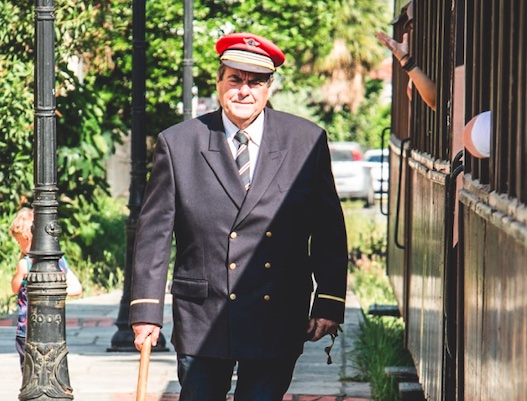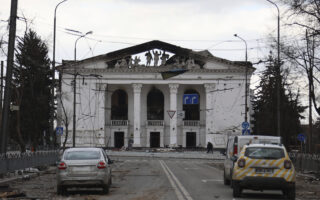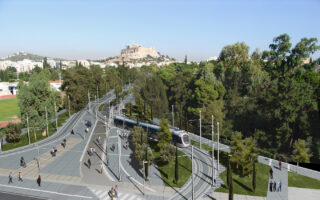‘We can track our food order but not our trains’

“Would they ever allow an air traffic controller at an airport to work nonstop without a single day off?” Giorgos Apostoleris, 61, could not hide his grief and anger. Having served as a stationmaster for 40 years, from 1982 until September 2022, when he retired, he remembers working without a single day off in the last few months of his career because there was no one to replace him. “I would get to the station at 3 a.m. every single day and leave at 2.30 p.m. I stuck it out because I loved the work, but who can do the same without having a single day off?” The consequences of such fatigue are chilling.
The veteran rail worker had another sleepless night after getting a call from colleagues with news of the tragedy in Larissa. They knew he’d want to be informed. The accident happened on a stretch of the national railway he knows like the back of his hand.
Apostoleris was the last stationmaster in Volos. Following his departure, it was left, for the first time in its 138 years of operation, without any permanent staff at all. The remaining employees were transferred to Larissa to cover shortages stemming from work on the network.
‘The stationmaster is a human being just like everyone else. He can make a mistake just like everyone else. Some mistakes, however, can be reversed; others, unfortunately, not’
“Being stationmaster is not just another job. You don’t just send a signal and leave,” he tells Kathimerini. “You only leave when the train has reached the terminus. It’s a massive responsibility. But the stationmaster is a human being just like everyone else. He can make a mistake just like everyone else. Some mistakes, however, can be reversed; others, unfortunately, not. If this is what happened here, it’s really tragic. I don’t want to pour salt on the wound, but no one wants to have 40 or more lives on their conscience because they made the wrong call.”
Apostoleris remembers making mistakes himself because he was distracted or his attention was somewhere else for a moment. “But they were reversed. Yesterday’s mistake could not be reversed because there was pressure on the system,” he says.
“Us trained professionals understand how it could happen, but the issue is that it could have been avoided if the state had treated the railway right. You can’t blame the human factor alone. The safe running of trains cannot be allowed to rely on a single person. That’s like being strapped to an electric chair. You don’t know if your shift will end with you going home, to the prosecutor or to prison,” he adds.
Apostoleris notes that in countries like Switzerland and Germany that have reliable automated operating systems, such an accident could have been avoided. “You see dozens of trains passing through every station abroad. Here in Greece there are just five intercity trains between Athens and Thessaloniki over the 24-hour period,” he says, pointing to the antiquated rail service.
He also remembers that when he started the job in Volos he found a train tracking map that had been installed there by the Germans in 1941. “There’s nothing like it there today. We know when our food order is 200 meters from our house, but not where the trains are.”
Apostoleris is also mourning the death of his colleagues on the ill-fated train. “They were family, people you keep track of, call to wish them a happy nameday, ask them about their kids, wish them a nice day. We have a special bond. I also cannot accept the death of so many passengers without tears. March 1 does not signal the start of spring, but a national tragedy.”





